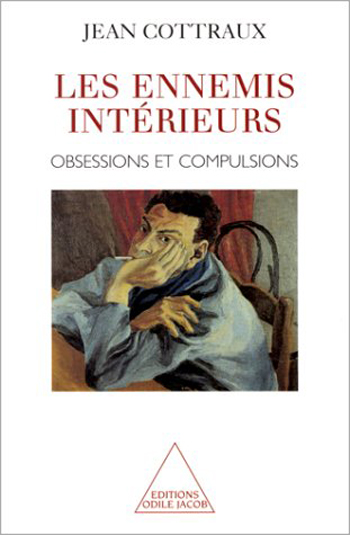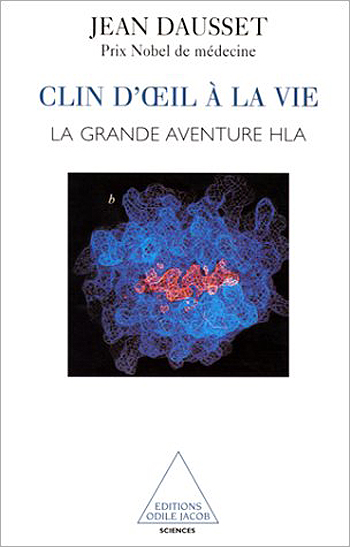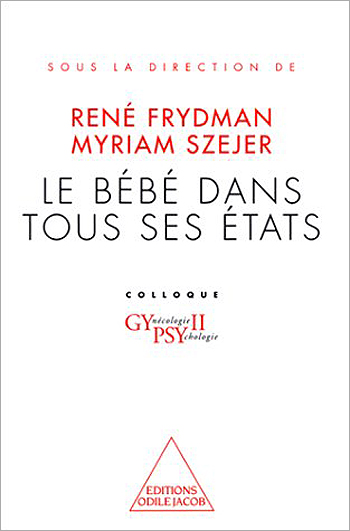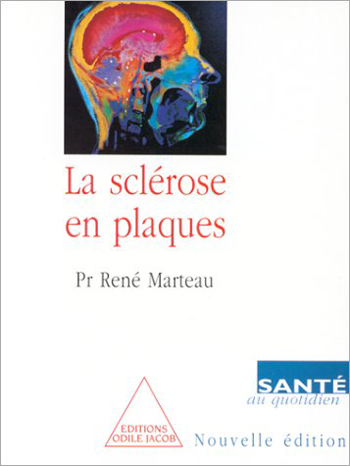Catalog All books

Jean Cottraux
Internal Enemies Obsessions and Compulsions
Why do some people become obsessed with cleanliness, fear of causing accidents, or the idea that they are guilty of some fault or imperfection? Where should the line be drawn between "normal" obsessions, from which everyone suffers to a greater or lesser degree, and pathological obsessions? When should measures be taken to treat those who suffer from obsessions? Why have obsessive-compulsive disorders become so common (2.5% of the population now suffer from them)? Jean Cottrauxs study of several clinical cases enables him to describe how obsessive-thought processes function. Doctor Jean Cottraux is a clinical psychiatrist and lecturer at the Université de Lyon I.

Jean Dausset
A Nod in the Direction of Life The Great HLA Adventure
Jean Daussets finding that white blood cells play an active role in immunization won him the Nobel Prize for Medicine and opened a new area of biological investigation, both in pure and in applied research. The HLA system harbours a unique peptide which may be regarded as the essence of the self in opposition to everything else much as the pineal gland was regarded as the seat of the soul by Descartes. The distinction between the self and the non-self is an essential one in immunology where an individuals defensive system must fight off foreign bodies while at the same time defending his or her own system. In his book, Jean Dausset recounts the story of his discovery and introduces the reader to other fascinating aspects of his life and work.

Gilbert Lagrue
Trying to quit smoking ?
Why do people smoke ? What is the role of nicotine, which produces all the pleasant sensations of tobacco inhalation ? Why do smokers find it so difficult to quit, when their health and even their lives are at risk? This is book is aimed at smokers, and all those who are interested in the mysteries of human behaviour. In order to break the futile vicious circle of guilt and failure, Gilbert Lagrue examines both the positive and the negative effects of tobacco.The authors goal is to lead the reader from understanding to action. How do smokers decide to quit? What are the different methods used in giving up smoking? How can smokers fight against physical and psychological dependence? And how can those who have quit ensure that they will not start smoking again? Professor Gilbert Lagrue is a renowned specialist on tobacco abuse and withdrawal. He is the founder of the tobacco-withdrawal unit at Hôpital Henri Mondor in Créteil.

Ilya Prigogine
The End of Certainties (Coll. Opus)
As we come to the end of the century, the question of the future of science is often posed. I believe we are just at the beginning of a new endeavour. We are witnessing the development of a science which is no longer limited to simplified, idealised situations, but makes us face the complexity of the real world. This new science will allow human creativity to be experienced as the unique expression of a fundamental trait common to all aspects of nature. Ive tried to present this conceptual transformation, which implies the beginning of a new chapter in the fruitful relations between physics and mathematics, in a manner that will be comprehensible and accessible to all readers interested in the evolution of our ideas of nature. We are but at the threshold of a new chapter in the history of our dialogue with nature, writes Ilya Prigogine. Ilya Prigogine, winner of the Nobel Prize for Chemistry, teaches at the Free University of Brussels and at the University of Texas, in Austin.

Jacques Delors
France and Germany - the Leap Forward
"During the past fifty years, the Franco-German ship has been shaken by numerous storms--although they never seriously halted her forward movement. In our opinion, strengthening the friendship between our two countries and working towards European political union will not lead to the loss of our French and German identities, nor will it dampen their vitality, for there can be no great design unless our national communities are fully alive and strengthened by a sense of social and citizens' cohesion." Jacques Delors

René Frydman, Myriam Szejer
The Baby Through All Stages of Development Gypsy II Conference
Can communication be established with new-born infants? Is it true that certain forms of sensory information can be transmitted to foetuses? How can doctors detect medical disorders which are the expression of psychic suffering in infancy? Can psychoanalysis help to relieve such disorders? To produce this report, paediatricians, midwives, psychotherapists, psychoanalysts, and researchers pooled their experience to provide a better understanding of what makes human beings develop harmoniously. The Gypsy II Conference was held in association with the organisation known as "La Cause des Bébés".






